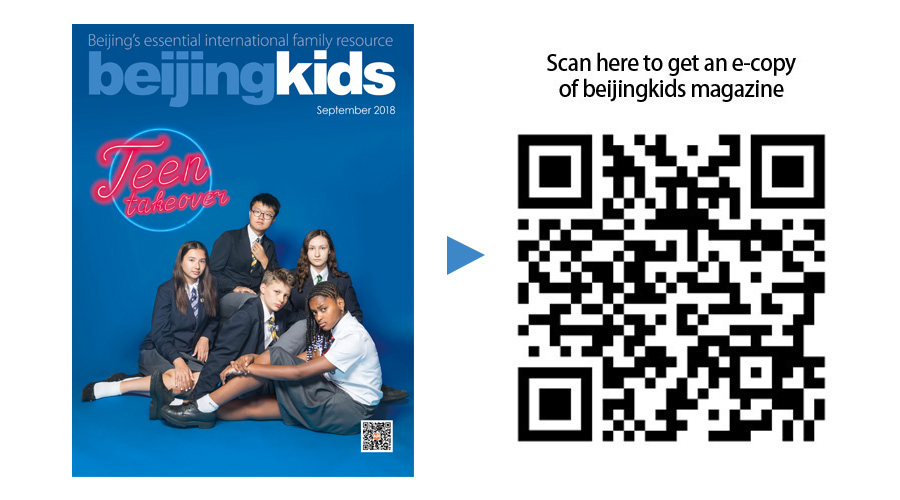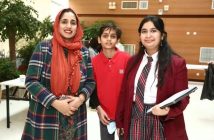At some point in our lives, we reach a time where we have to decide on a new home. That time came for me last fall, when I began applying for college. The difficulty of the process made me realize that my designated home for the next four years would have to be an optimal space for me to share with what I have come to embrace as my metaphysical home— literature.
Logically, the obvious choice for a prospective English major is a college renowned for its excellence in the humanities. However, I instead chose Stanford University, a campus known for its technological innovations, as my first choice. My reasons for deciding that Stanford was the most suitable for me to develop my literary skills trace back to my childhood adventures with books, which lured me into the English language in the first place.
Believing that I was of a mathematical lineage (my grandparents and my parents all majored in fields affiliated with math), my mother encouraged me to read from a very young age to ensure that I didn’t develop an “aversion to fiction” as she had. Though this originated from a somewhat comical worry, this notion of my mother to give me a balanced education sustained me through my academic endeavors. Ironically, contrary to my mother’s fears, I ended up becoming a literature nerd.
When I moved to North Carolina in the third grade, between my mother’s aggressive shopping at Scholastic Book Fairs and my school’s Accelerated Reading system that rewarded me with increasingly fabulous toys when I read more books, I fell in love with reading. I found myself lost in the fantastic worlds of Harry Potter and Ramona Quimby. Feeding off this fiction to build myself a better reality, my imagination flourished.
In my childhood craze, the guest room became a den for Lionblaze, Jayfeather, and Hollyleaf from Warriors, our patio became the throne upon which Zeus ruled the heavens, and the one-hour recesses at school became a ten-page chapter in the grown-up lives of Harry, Ron, and Hermione. Those two years were simpler times that I had with books, when they merely supplemented my daily routine with doses of amusement and adventure, before I relied on them for solace and much-needed consistency.
I moved back to China for 5th grade. My liaisons with books gained an intensity that started evolving into dependency. Back in China, I realized that the essential parts of my identity were developed under American values, values that had begun eroding in a different society under a different culture. Books supported me through my transition between the two countries. When I had lost a sense of where “home” was and what culture I identified with the most, I constructed a permanent home out of my books.
This conceptual home directed me to my new home at Stanford. Many of the activities that I ended up writing about in my application essays I did to gain intimacy with literature. Wanting to build a haven for kids like my younger self, who craved the space and freedom to browse through shelves of English books, I founded the Minted Library, an English children’s library, where children could volunteer and are encouraged to help each other discover interesting new books. To dive deeper into academia and examine literature from more than a commercial point of view, I conducted research on the morality of using violence to induce aesthetic pleasure in readers, evaluating the role literature plays in constructing the values of a society.
During my increasing obsession with literature, my mother, now feeling that I was straying farther and farther away from my heritage, swooped in repeatedly to prevent me from becoming completely inept in math. Thus, at the same time that I took online courses in literature and composition, I participated in online creative problem-solving forums and entered math competitions (although I failed miserably).
Despite the obvious disparity in my passion for math and literature, I put in enough effort to do well in math and gain an appreciation for the mystery of numeric connections. In a chase for the adrenaline rush of solving a problem and keeping in mind my mother’s principle of balance, I chose Discrete Math (the hardest course in my curriculum and a prerequisite for Computer Science) for my Senior-year math course. In the maze of logical equations and proofs, I found that my literary skills were a crutch. My experience with words, from arranging debate arguments to writing essays interpreting literary works, helped me develop a way of thinking that supported my endeavors in mathematical proof-writing and problem-solving. When I write speeches for debate tournaments, I bear in mind the listener’s perspective to make sure that they can understand clearly my reasons for holding my point of view. In these speeches, I arrange words in straightforward sentences with clear, logical progression. Similarly, in the proofs I write for math class, I arrange symbols, careful to avoid ambiguity while keeping in mind that I’m writing for an audience.
More unexpectedly, I found my ability to make connections between literary texts helped me associate foreign concepts in math with what I have learned before. Unions and disjunctions in set operations are merely more complicated versions of additions and subtractions. The conclusion that I then arrived at is what is called in mathematical logic “a necessary and sufficient condition”. If learning literature can improve my math skills, then vice versa, because literature and math share common skill sets that are developed in both areas.
Out of all the possible advantages math could give me, math gave me faith. This faith gave me the confidence to articulate my theories and ideas even when they seemed impossible to prove. Through all of the young adult novels sermonizing the importance of believing in oneself, I never learned to have the faith to tread down the path of a seemingly farfetched understanding of a story and flesh out my theory into a written critique. Instead of analyzing how the car crash in “The Great Gatsby” symbolized the culmination of the conflicts between poor and rich in AP Literature class, I wrote about a classic, appears-on-SparkNotes interpretation that the green light Gatsby reached for symbolized his delusional yearning for the American Dream.
As a result, I lived in my head after reading a book, always thinking but never putting my thoughts into words. However, what I couldn’t do in writing, I have done solving geometry problems since middle school. It’s taking a leap of faith that the tiniest strand of connection between two clues can be the starting point for a solution. Then in preparation for China’s strictly-timed exams, the zhongkao, I was forced to have the conviction that following through with my perception of the problems is going to lead me to the answer.
Finally bored with writing safe but not challenging papers, I took a leap of faith with my end-of-term essay at the Summer Stanford Humanities Institute. I found two instances of a conversation in “The Brothers Karamazov” where one person is talking, and the other is silent and compared them to the act of praying to an icon of God; my reason for comparison is that the icon is also silent while the praying person spoke. Another area where I found that math helped improve my skills in literature is with increased precision in my writing. Mathematical language is very concise and efficient. This trained me to write clean sentences, making sure that every word is used with a precise purpose.
The tricky thing with houses of thought is that one can dwell so long in it that eventually all that’s left are shaped ideas and a rut one can’t get out of. Stanford is the perfect place for me to step out of my comfort zone, to hear the buzz of innovation in other fields outside of my interests in literature. Nestled next to Silicon Valley, this university receives a massive influx of the newest ideas in tech. Students interested in these subjects offer their viewpoints in a constant churn of discussion, which can add a new perspective to what I have learned in the humanities. A conversation about artificial intelligence can give way to the philosophical debate about whether humans have a metaphysical mind separate from the brain that deems machines forever unable to replicate human intelligence. Rapid mechanization in society can elicit thought on the ethics of technological advancement. Becoming increasingly intertwined, every area of study cannot progress without the other.
Ultimately, I keep in mind that a good balance sustains a house, and that my house of literature needs knowledge of math and technology to find an equilibrium.

Photo:
This article appeared on p38-39 of the beijingkids September 2018 Teen Takeover issue.




